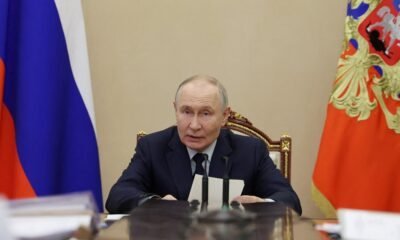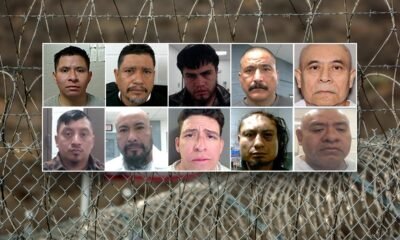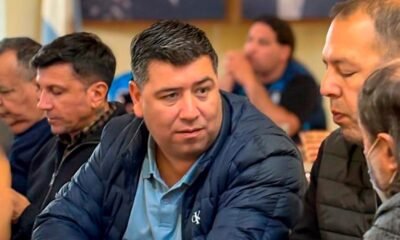INTERNACIONAL
Former French President Nicolas Sarkozy sentenced to five years in Libya corruption case

NEWYou can now listen to Fox News articles!
Former French President Nicolas Sarkozy has been sentenced to five years in prison after being found guilty of criminal conspiracy in a scheme to finance his 2007 presidential campaign with Libyan funds, the Associated Press reported Thursday.
The ruling marks the first time in modern French history that a former president will serve time behind bars.
The court in Paris said Sarkozy, 70, would not be taken into custody immediately, but will begin serving his sentence on a date to be determined later.
FRANCE’S MACRON NAMES CENTRIST ALLY BAYROU AS NEXT PRIME MINISTER
Judges found Sarkozy guilty of criminal association between 2005 and 2007, when he was interior minister, for permitting close aides to seek campaign money from Libya in exchange for diplomatic favors. (Christophe Ena/ AP)
«If they absolutely want me to sleep in prison, I will sleep in prison. But with my head held high. I am innocent. This injustice is a scandal,» Sarkozy said outside the courthouse with his wife, singer and model Carla Bruni-Sarkozy, according to AP.
«What they humiliated today is France,» he insisted.
The panel of judges found Sarkozy guilty of criminal association between 2005 and 2007, when he served as interior minister.
He was also found guilty of permitting close aides to seek campaign money from Libya in exchange for diplomatic favors and during the rule of late dictator Muammar Gaddafi.
He was however acquitted of three other charges, including passive corruption and illegal campaign financing.
FRENCH RIGHT-WING LEADER MARINE LE PEN FOUND GUILTY OF EMBEZZLING PUBLIC FUNDS, BARRED FROM RUNNING FOR OFFICE
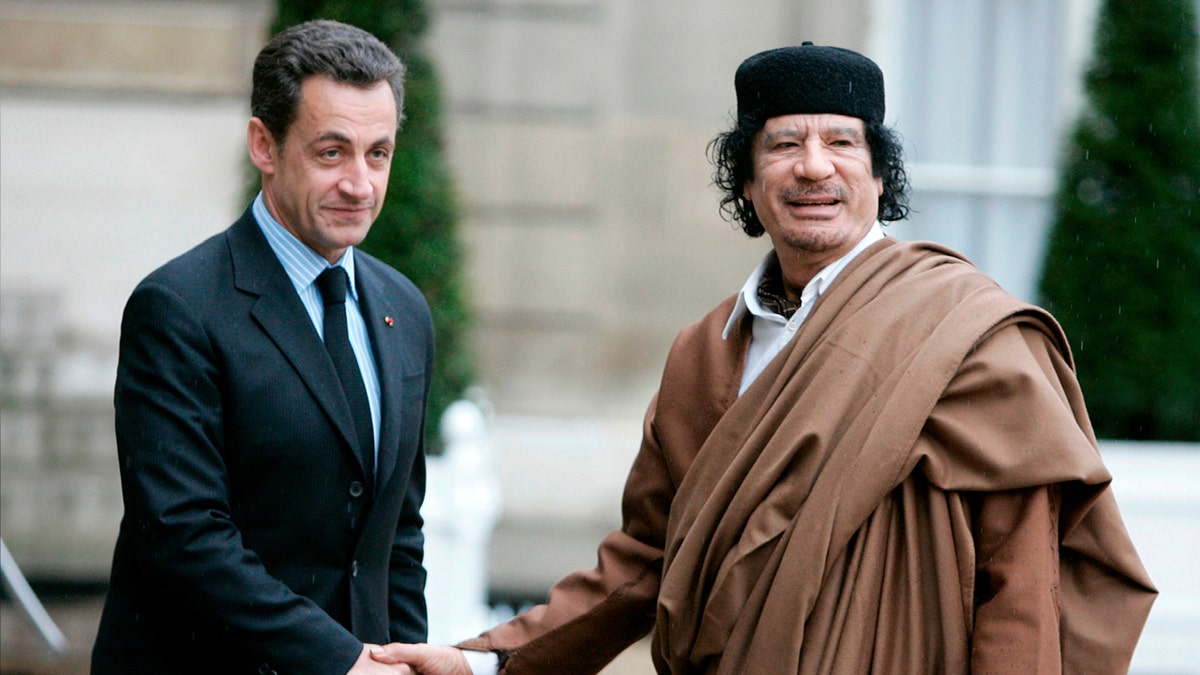
Nicolas Sarkozy, left, and Libyan leader Col. Moammar Gadhafi in 2007 at the Elysee Palace, in Paris. (AP Photo/Francois Mori)
In court, chief judge, Nathalie Gavarino also said the conspiracy aimed «to prepare an act of corruption at the highest possible level in the event that you were elected President of the Republic,» AP reported.
She also described the facts as «exceptionally serious» and damaging to public trust in democratic institutions.
Sarkozy, who led France from 2007 to 2012, had rejected the allegations during the three-month trial, calling them an «idea» pushed by aides without his approval.
«I am being convicted for supposedly allowing my staff to pursue the idea – the idea of illegal financing,» he said.
Two of Sarkozy’s longtime allies were also convicted Thursday.
SOCIAL MEDIA REACTS TO TRUMP ‘DOMINATING WORLD LEADERS’ WITH MACRON HANDSHAKE DURING MEETING IN FRANCE
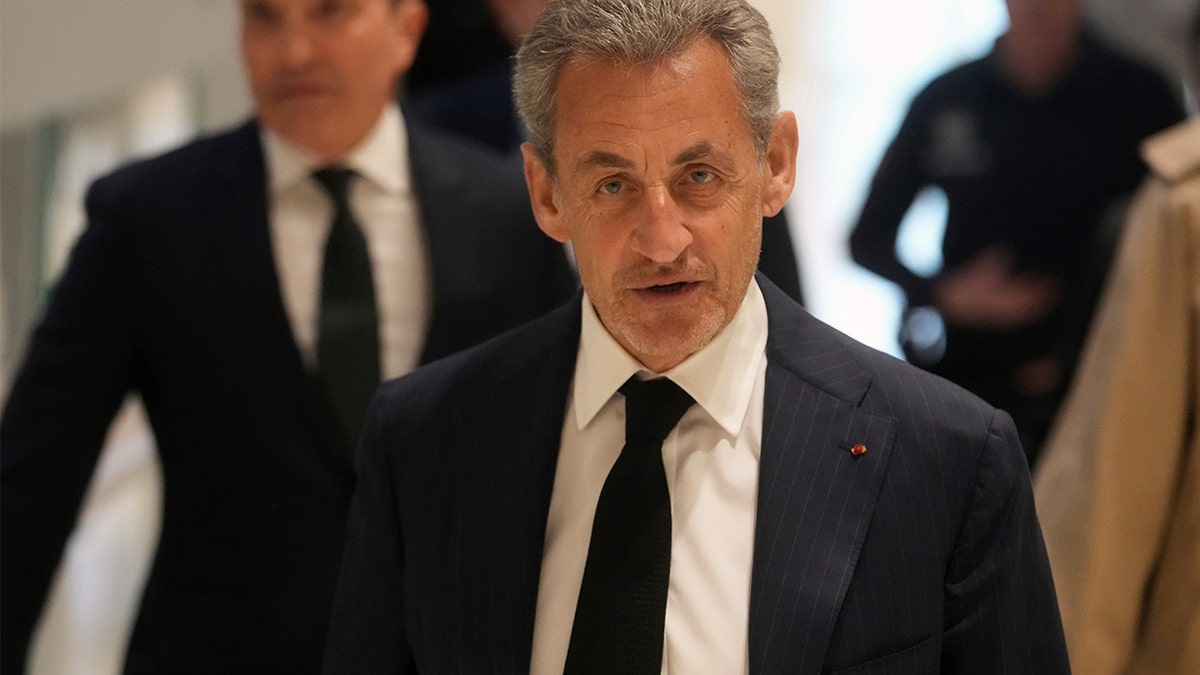
A Paris court sentenced former French President Nicolas Sarkozy to five years in prison. (Thibault Camus/AP)
Former Interior Minister Brice Hortefeux received a two-year sentence to be served under electronic monitoring.
Claude Guéant, Sarkozy’s ex-chief of staff, was sentenced to six years in prison but spared immediate incarceration for health reasons.
Judges said the men had secretly met with Libyan intelligence chief Abdullah al-Senoussi, brother-in-law of Moammar Gadhafi, as part of a «corruption pact.»
The court also noted it could not prove Libyan funds directly reached Sarkozy’s campaign but said French law allows conviction if corrupt intent is established, even without a financial transfer.
Sarkozy has since vowed to appeal.
CLICK HERE TO GET THE FOX NEWS APP
The case traces back to 2011, when Libyan officials claimed Tripoli funneled millions of euros to Sarkozy’s campaign.
He has also faced multiple legal battles since leaving office, including separate convictions for corruption and illegal campaign financing.
europe,france,crime world,corruption
INTERNACIONAL
Russia sentences American to 4 years for allegedly trying to take Kalashnikov rifle stocks: report
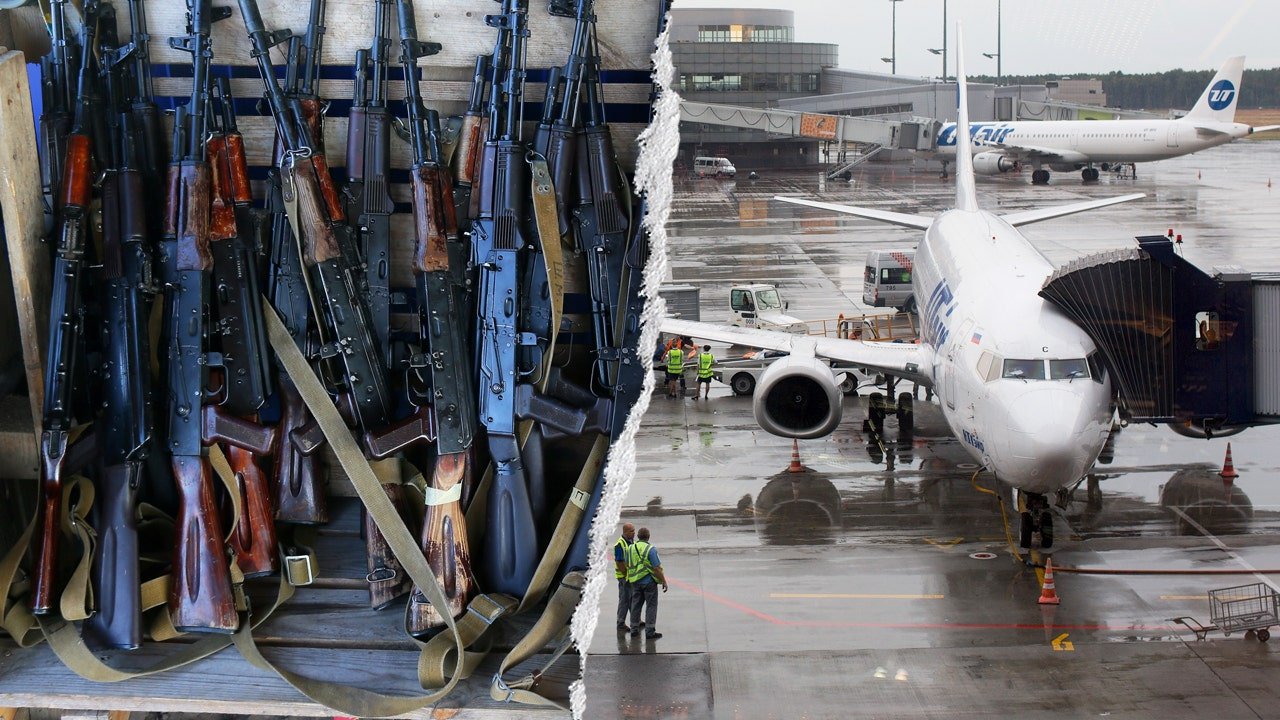
NEWYou can now listen to Fox News articles!
An American was sentenced Tuesday to four years in jail in Russia for allegedly trying to fly out of an airport in Moscow with the stocks of Kalashnikov assault rifles in his suitcase, a report said.
The unnamed U.S. citizen, who collects Kalashnikov weapons, did not make a customs declaration after purchasing two stocks and checking a suitcase containing the items at Moscow’s Vnukovo airport, Reuters reported, citing the RIA Novosti state news agency.
He later was found guilty under an article of Russian criminal code relating to the smuggling of weapons, it added.
Fox News Digital has reached out to the State Department for comment.
RUSSIA UPS JAIL SENTENCE OF US CITIZEN TO 10 YEARS FOR BEATING PRISON STAFF
AK-47 rifles are seen during a training session at a shooting range outside of Kyiv, Ukraine, on the left, in July 2023. On the right are passenger jets at Moscow’s Vnukovo airport. An American reportedly was jailed after trying to transport Kalashnikov rifle stocks in a suitcase at the airport. (STR/NurPhoto via Getty Images; Andrey Rudakov/Bloomberg via Getty Images)
Russian state media is also claiming the American partially admitted guilt, according to Reuters.
The State Department warns Americans not to travel to Russia «for any reason due to terrorism, unrest, wrongful detention and other risks.»
CHINA PLEDGES AID TO UKRAINE AS US OFFICIALS WARN BEIJING IS QUIETLY FUELING RUSSIA’S WAR

A Kalashnikov of a Ukrainian soldier participating in shooting training is seen in Donetsk region of Ukraine on July 31, 2024. (Jose Colon/Anadolu via Getty Images)
«The U.S. Embassy in Moscow has limited ability to assist in the case of a detention of a U.S. citizen. There is no guarantee that the Russian government will grant the U.S. Embassy consular access to detained U.S. citizens,» the State Department said. «U.S. citizens may serve their entire prison sentence without release. The risk of wrongful detention of U.S. citizens remains high. Even if a case is determined wrongful, there is no guarantee of release.»

A terminal at Vnukovo International Airport in Moscow, Russia, in August 2023. (Maxim Shemetov/Reuters)
CLICK HERE TO DOWNLOAD THE FOX NEWS APP
«Russian officials often question and threaten U.S. citizens without reason. Russian security services have arrested U.S. citizens on false charges,» it added. They have denied them fair treatment and convicted them without credible evidence. Russian authorities have opened questionable investigations against U.S. citizens for their religious activities.»
russia,crime,state department,world
INTERNACIONAL
Irán está dispuesto a que haya una verificación de que no busca tener armas nucleares
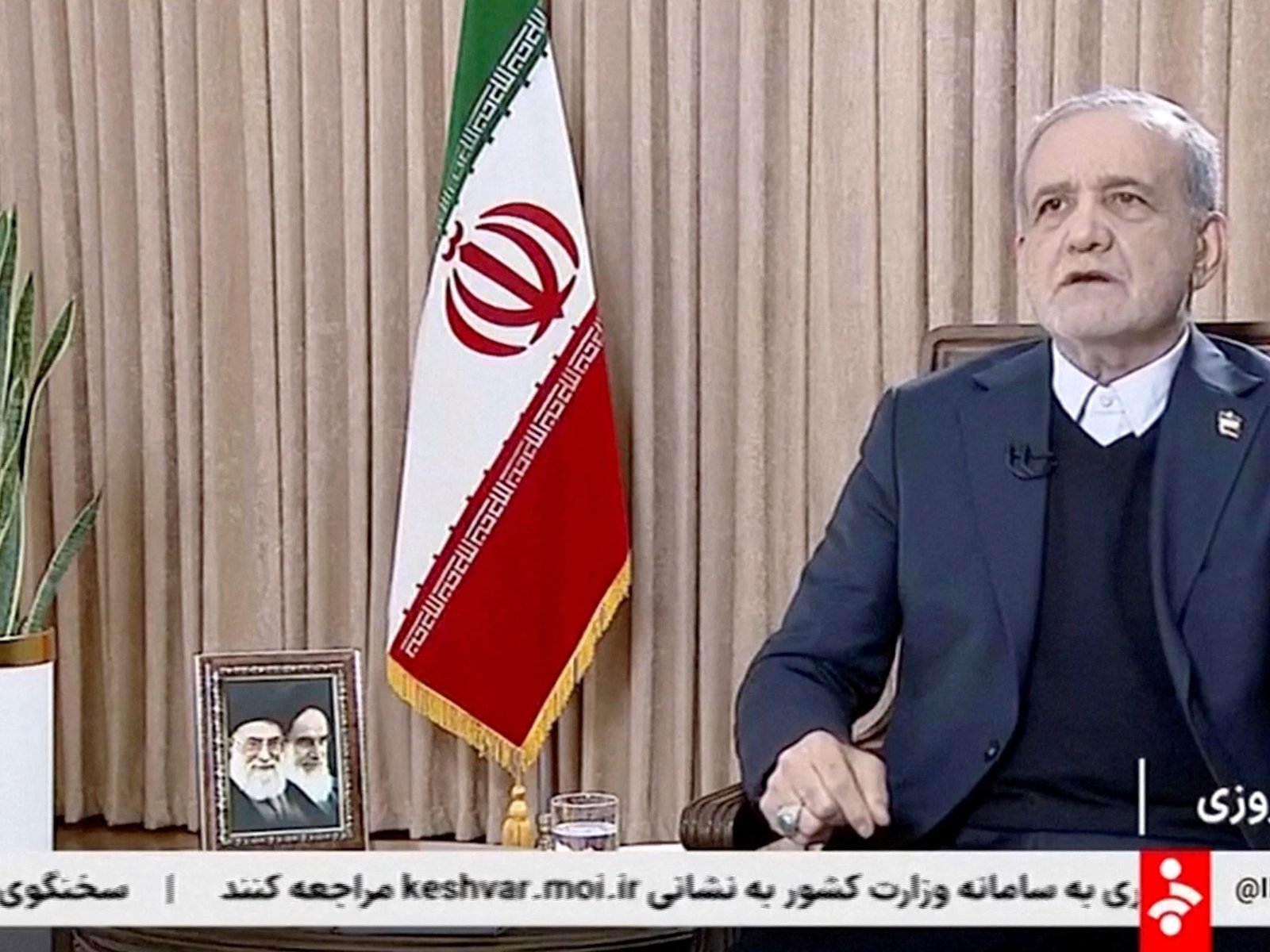
El presidente iraní, Masoud Pezeshkian, afirmó que su país está dispuesto a que haya una verificación de que no busca dotarse de armas atómicas, coincidiendo con el ciclo de negociaciones con Estados Unidos sobre el programa nuclear.
«No estamos buscando en absoluto tener armas nucleares», declaró Pezeshkian en una entrevista publicada este martes. «Si alguien quiere verificarlo, estamos dispuestos a que se lleve a cabo dicha verificación».
Irán y Estados Unidos mantuvieron este martes unas breves negociaciones, en las que no hablaron directamente, sino que se intercambiaron mensajes a través de Omán, en su papel de mediador, y tras las cuales la vía diplomática se mantiene abierta en la búsqueda de un acuerdo sobre el programa nuclear iraní.
Al término del encuentro, el ministro de Exteriores de Irán, Abás Araqchí, declaró que se había logrado «un buen progreso respecto a la sesión anterior» (hace veinte días), que en esta ocasión el ambiente fue «más constructivo e incluso se refirió a avances sobre «una serie de principios rectores», según los cuales se redactará un posible borrador de acuerdo.
«Tenemos una decisión más clara sobre qué acciones deben tomarse», declaró, sin ofrecer detalles de lo conversado.
Más optimismo aún mostró el ministro de Asuntos Exteriores de Omán, Badr bin Hamad al Busaidi, que hizo de mediador y quien habló de «buenos avances» en la identificación de «objetivos comunes» y de «cuestiones técnicas relevantes».
A través de una declaración por redes sociales, el ministro omaní también se refirió a los esfuerzos que se hicieron para definir los principios a los que se refirió su homólogo iraní, aclarando siempre que queda mucho camino por andar y que habrá otra reunión próximamente.
La figura del director general del Organismo Internacional de la Energía Atómica (OIEA), Rafael Grossi, tomó relevancia en esta segunda ronda de las negociaciones, que se reanudaron tras los ataques de Estados Unidos contra tres instalaciones nucleares iraníes el pasado junio, en una operación conjunta con Israel.
Grossi, quien es candidato a ser secretario general de la ONU, se reunió el lunes con Araqchí, y hoy mismo lo hizo con la delegación estadounidense, que han liderado el enviado especial de la Casa Blanca, Steve Witkoff; y Jared Kushner, yerno del presidente Donald Trump.
En una comparecencia horas después en la Conferencia de Desarme de la ONU, reunida en la sede europea de la organización en Ginebra, Araqchí ofreció algunas claves de lo abordado con Grossi cuando, tras denunciar los ataques estadounidenses de mediados de 2025, dijo que en la actualidad «no existen modalidades» que hagan posible la inspección de las instalaciones afectadas por parte de la OIEA.
«Esas instalaciones requieren un marco acordado mutuamente entre Irán y la agencia. Esto es algo en lo que estamos trabajando», reveló el ministro en ese momento y mostró la disposición de Irán a responder a algunas de las exigencias de Estados Unidos.
Aunque no se sabe con certeza en qué condiciones se encuentran esas plantas, informes de organismos internacionales apuntan a que sufrieron daños significativos.
Sin embargo, durante la jornada también hubo mensajes duros -implícitos y explícitos- de Irán con respecto a Estados Unidos, a su forma de negociar y a sus exigencias, al tiempo que le recomendó actuar con prudencia en relación a sus amenazas de atacar militarmente si el régimen iraní no se pliega a sus exigencias.
A este respecto, Araqchí dijo en la ONU que en caso de que EE.UU. le agreda, su respuesta «no se limitará a sus fronteras», mientras que desde Teherán se anunciaba el cierre durante varias horas para maniobras navales de partes del estrecho de Ormuz, una vía marítima muy importante geopolítica y comercialmente.
Trump ha manifestado su interés por resolver la cuestión nuclear iraní -tras señalar que estaría involucrado a distancia en las negociaciones de hoy-, en particular después de la violenta represión armada de las manifestaciones multitudinarias que tuvieron lugar en las primeras semanas de este año en Irán y en las que murieron miles de personas.
Estados Unidos junto con los otros cuatro países del Consejo de Seguridad de la ONU, más Alemania, alcanzó en 2015 un acuerdo sobre el programa nuclear iraní, el cual establecía medidas para garantizar que se adecuara únicamente a fines civiles a cambio del alivio de sanciones, pero Trump retiró a su país del mismo en 2018, durante su primer mandato.
INTERNACIONAL
Obama dragged for ‘headache’-inducing presidential center update that has visitors squinting
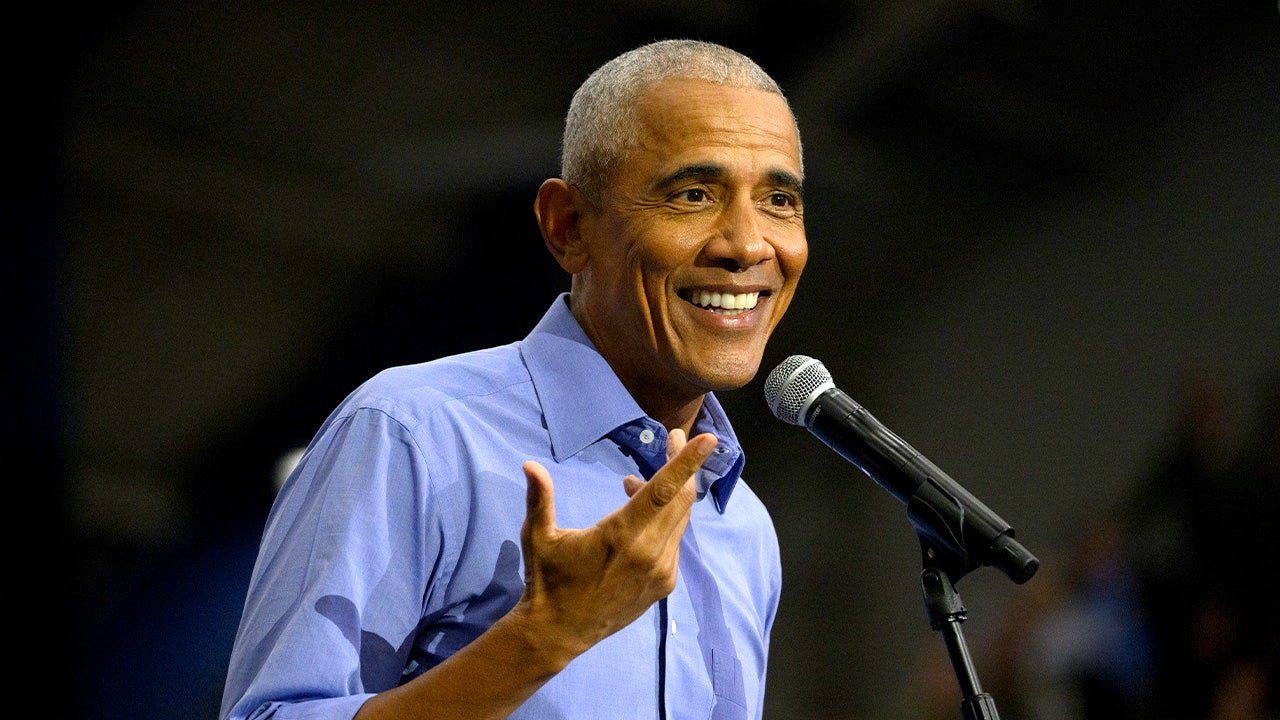
NEWYou can now listen to Fox News articles!
Former President Barack Obama’s presidential center in Chicago is again coming under scrutiny for its architectural design — this time leaving locals scratching their heads over confusing text wrapped around the top of the building.
«I’m outside the Obama Center museum tower right now,» Chicago Sun-Times architecture critic Lee Bay posted to X Monday, sparking a deluge of mockery from locals and conservatives.
«The new letters — an excerpt from Obama’s Selma speech — are tough read to me, giving off the lorem ipsum vibes,» he added, referring to placeholder «dummy» text frequently used in graphic design templates to fill space with scrambled Latin.
Obama’s presidential center — which includes a library, athletic facilities, a museum and more — is slated to open in June after years of delays that included lawsuits and federal reviews of opening the 20-acre campus on Chicago’s South Side.
OBAMA PRESIDENTIAL CENTER SLAMMED FOR PROMOTING ‘FAR-LEFT’ AGENDA ON PUBLIC LAND
The text of former President Obama’s speech marking the 50th anniversary of «Bloody Sunday» in Selma, Alabama, is wrapped around the side of the upcoming presidential center in Chicago. (E. Jason Wambsgans/Chicago Tribune/Tribune News Service via Getty Images)
The construction includes a 225-foot museum tower with the text of Obama’s 2015 speech in Selma, Alabama, marking the 50th anniversary of Bloody Sunday, when civil rights demonstrators were met with violent resistance from local law enforcement in a watershed moment that helped galvanize support for the 1965 Voting Rights Act.
OBAMA PRESIDENTIAL CENTER JOB LISTINGS PUSH ‘ANTI-RACISM’ PLEDGE AHEAD OF OPENING
The text of Obama’s speech, inscribed on the upper echelon of the tower, reads: «You are America. Unconstrained by habit and convention. Unencumbered by what is, ready to seize what ought to be. For everywhere in this country, there are first steps to be taken, there is new ground to cover, there are more bridges to be crossed. America is not the project of any one person. The single most powerful word in our democracy is the word ‘We.’ ‘We The People.’ ‘We Shall Overcome.’ ‘Yes We Can.’ That word is owned by no one. It belongs to everyone. Oh, what a glorious task we are given to continually try to improve this great nation of ours.»
Critics of the building had a field day on X in response to the building update, including one user comparing it to a «Klingon prison» in a nod to «Star Trek,» while others lampooned the alleged inability to read the text of the building.
«What don’t you understand about,» Targeted Victory vice president Logan Dobson posted. «YOU ARE AMERICA ED BY HABILAND UNENCUMBERED ADY TO SEIZE WE,» he continued, mocking the confusing lay out of the text.
OBAMA PRESIDENTIAL CENTER BREAKS SILENCE OVER CONTROVERSIAL BUILDING DESIGN

Former President Barack Obama’s presidential center in Chicago is facing mounting scrutiny over a speech inscription on the building that has left viewers confused. (Jeff Swensen/Getty Images)
«The dyslexic in me is not amused,» journalist and columnist Salena Zito posted.
«He put his own speech on the outside of his library?» one user posted. «Find yourself someone who loves you like Obama loves himself.»
«I gave up after developing a headache three lines from the top,» one user posted.
PROTESTERS RAGED, CRITICS MOCKED — NOW OBAMA SAYS HIS LIBRARY’S ACTUALLY OPENING
«It looks like a WW2-era German anti-aircraft tower,» another posted.

Former First Lady Michelle Obama gives her remarks during the groundbreaking ceremony of the Obama Presidential Center in Chicago, Sept. 28, 2021. (Sebastian Hidalgo/Reuters)
«I noticed when I was in the air that the sentences wrap around the west and south sides of the building, and looks decent in a very specific spot on the ground or very good from the air…but like that’s not an ideal design in my opinion,» a Chicago photojournalist posted to X.
Other users didn’t take issue with the campus itself, but remarked how the construction is gentrifying the South Side.
«It actually does look good,» one user posted. «Love or hate the guy, at least the presidential library will have a nice park for people to walk through. I get the whole blue vs red thing. But right now the main problem seems to be the gentrification and house price increases in the neighbourhood.»

The main tower of the Obama Presidential Center rises above Jackson Park in Chicago as construction continues on the privately run campus. (Fox 32 Chicago)
The text inscription was preparing for installation at the end of 2025, according to the Obama Foundation’s website.
«At the Museum Building, crews are preparing support structures ahead of the installation of screen text taken from President Obama’s speech «You Are America,» which marked the 50th anniversary of the Selma to Montgomery marches,» the Obama Foundation said in its year-end recap on construction for 2025.
The Obama Foundation has celebrated the center repeatedly since it was first announced more than a decade ago, describing it ahead of its opening as «a lively community hub, economic anchor, and beacon of democracy right here on the South Side of Chicago.»
CLICK HERE TO GET THE FOX NEWS APP
The campus has come under scrutiny from locals over gentrification concerns and over its Brutalist-style of architecture, a post-war-era style popularized in the 1950s known for its modular and minimalist designs. For locals in Chicago, they’ve dubbed the building the «The Obamalisk,» according to the New York Post, in a jab at the Brutalist-inspired design.
Fox News Digital reached out to the Obama Foundation for additional comment Tuesday morning.
barack obama,michelle obama,white house,chicago

 POLITICA2 días ago
POLITICA2 días agoUno de los jefes de la CGT adelantó que convocarán a un paro general por la reforma laboral: “Trabajaremos para que sea una gran huelga”

 POLITICA21 horas ago
POLITICA21 horas agoCristian Ritondo: “Vamos a apoyar la ley de modernización laboral, pero no el régimen de licencias por enfermedad”

 POLITICA2 días ago
POLITICA2 días agoEfecto Santa Fe: policías y penitenciarios de Río Negro rechazaron un aumento en cuotas y amenazan con acampar por tiempo indeterminado en Viedma





